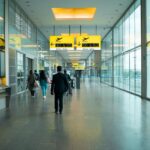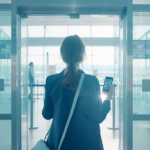Malaysia’s Immigration Department is expanding automated immigration clearance at its major airports with the installation of 40 new autogates at Kuala Lumpur International Airport (KLIA) and klia2. The new gates will incorporate QR code technology integrated with facial recognition systems, building on the biometric passenger screening initiative launched in 2021.
The enhanced autogates are designed to process travelers in under five seconds, reducing the current processing time of 10-15 seconds. This upgrade comes as Malaysia has extended autogate access to citizens from 63 countries, representing a significant expansion from the system’s initial deployment which served only Malaysian nationals.
According to Immigration Director-General Datuk Zakaria Shaaban, the procurement process for the additional gates is expected to conclude within three weeks. The implementation aligns with Malaysia’s preparations for chairing ASEAN in the coming year and follows the successful Malaysia-Singapore cross-border QR code pilot program that demonstrated significant efficiency improvements in regional travel processing.
The new system incorporates security features to prevent unauthorized access and manipulation. “The gates will only open after all foreign nationals’ information is scanned onto the autogate screen. If the information is recorded in the system, it will be processed automatically, preventing any manual interference,” Shaaban explained. This security architecture builds upon lessons learned from regional implementations, including successful deployments at Indonesian seaports that have shown dramatic improvements in queue management.
Previously, automated immigration clearance was primarily available to Malaysian citizens through dedicated autogates. The expansion of access to foreign travelers necessitated the system upgrade to maintain efficient processing times and manage increased passenger volumes, particularly as international travel continues to recover to pre-pandemic levels.
The automation initiative coincides with recent challenges in Malaysia’s immigration infrastructure, including a system outage at the Johor Bahru-Singapore border crossing. In response to that incident, immigration authorities opened additional lanes to manage congestion, highlighting the importance of maintaining robust backup procedures alongside digital transformation efforts.
Sources: SAYS, New Straits Times, The Register
–
December 10, 2024 – by Ji-seo Kim








Follow Us